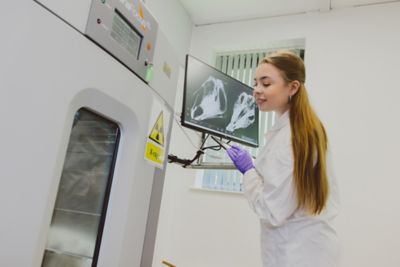* For full details including fees for part-time students and reduced fees during your time studying abroad or on placement (where applicable), see our fees page.
If you are a student from the EU, EEA or Switzerland, you may be asked to complete a fee status questionnaire and your answers will be assessed using guidance issued by the UK Council for International Student Affairs (UKCISA).
Additional costs
All students will need at least one device to approve security access requests via Multi-Factor Authentication (MFA). We also recommend students have a suitable laptop to work both on and off-campus. For more information, please check the equipment advice.
As a student on this course, you should factor some additional costs into your budget, alongside your tuition fees and living expenses.
Printing
Due to our commitment to sustainability, we don’t print lecture notes but these are available digitally.
Books
You will be able to access all of the books you’ll need through our libraries, but you may wish to purchase your own copies of books you use a lot. If you do most books cost around £20-£50.
Equipment
If your subject stream requires you to work in the laboratory (eg Biology and Chemistry), your tuition fees will cover the cost of a protective lab coat and safety goggles. If you lose these you are responsible for the cost of replacing them (around £25).
While the calculator you used for your former study is usually sufficient some students will choose to purchase a new calculator which will cost around £10.
Students may want to purchase a Molecular Model Kit to help with visualising molecules in Chemistry these cost £20.
Personal laptops are not compulsory as we have computer labs that are open 24 hours a day but you may want to consider one if you wish to work at home. Find out more about IT equipment.
Field trips
Depending on which pathway you choose there are optional field modules in Earth Science and Ecosystems and Environment which may incur a cost. These range from £30-50 for UK-based day trips to as much as £400 for overseas residential trips. A full list of approximate expected prices for is available at the start of each year.
Studying abroad
You need to consider the travel and living costs associated with your country of choice. This may include visa costs and medical insurance.
Other costs
Students will be responsible for the cost of hire of their gown for graduation (around £50) and may need to pay for additional guest tickets.
In addition there may be costs issued by the university for replacement student ID cards, additional transcripts or certification letters, reassessments and library fines.
Scholarships and bursaries
International students
We offer a range of international undergraduate scholarships for high-achieving international scholars who can put their Nottingham degree to great use in their careers.
Tuition fees 2025/26 (UK undergraduate students)
The UK Government has confirmed that the maximum tuition fee for full time UK undergraduate and Initial Teacher Training students studying in England will increase to £9,535 for the 2025/26 academic year. The university will charge the maximum approved fee, which is an increase of £285 per year. For more information, please read our FAQs.
Additional costs
As a student on this course, you should factor some additional costs into your budget, alongside your tuition fees and living expenses.
Printing
Due to our commitment to sustainability, we don't print lecture notes but these are available digitally.
Books
You will be able to access all of the books you’ll need through our libraries, but you may wish to purchase your own copies of books you use often. If you do most books cost around £20-£50.
Equipment
If your subject stream requires you to work in the laboratory (eg Biology and Chemistry), your tuition fees will cover the cost of a protective lab coat and safety goggles. if you lose these, you are responsible for the cost of replacing them (around £25).
While the calculator you used for your former study is usually sufficient some students will choose to purchase a new calculator which will cost around £10.
Students may want to purchase a Molecular Model Kit to help with visualising molecules in Chemistry these cost £20.
Personal laptops are not compulsory as we have computer labs that are open 24 hours a day but you may want to consider one if you wish to work at home. Find out more about IT equipment.
Field trips
Depending on which pathway you choose there are optional field modules in Earth Science and Ecosystems and Environment which may incur a cost. These range from £30-50 for UK-based day trips to as much as £400 for overseas residential trips. A full list of approximate expected prices for is available at the start of each year.
Other costs
Students will be responsible for the cost of hire of their gown for graduation (around £50) and may need to pay for additional guest tickets.
In addition there may be costs issued by the university for replacement student ID cards, additional transcripts or certification letters, reassessments and library fines.
Scholarships and bursaries
Home students*
Over one third of our UK students receive our means-tested core bursary, worth up to £1,000 a year. Full details can be found on our financial support pages.
* A 'home' student is one who meets certain UK residence criteria. These are the same criteria as apply to eligibility for home funding from Student Finance.







